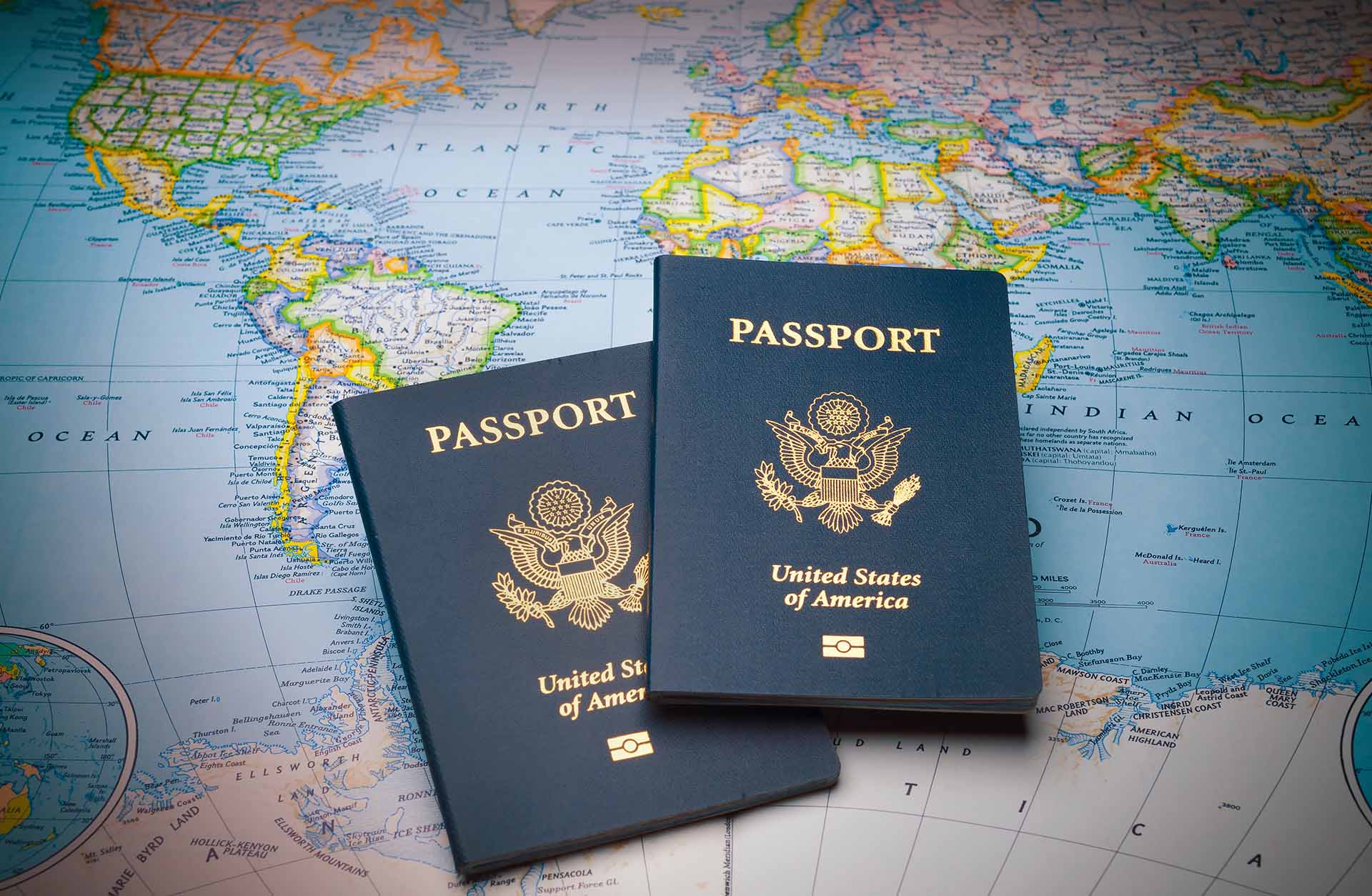Moving abroad for work is an exciting venture for many graduates. Understanding how to find a job after college graduation in a new country can be challenging. However, with the right approach, it’s an attainable goal. We will assist you in navigating this procedure and guiding you through the thrilling adventure of finding a job after college.

Research the global work market, research visas, and work permits, and take advantage of career services and alumni networks. Utilize online and global employment search platforms and make a proper cover letter and resume. Be prepared for online interviews and open to volunteering and internship, and start learning local language time. Hire an overseas shipping company to handle your relocation and stay concentrated on work hunting.
Research the Global Work Market While Learning How to Find a Job After College
In the modern era, technology and globalization have facilitated more fluid employment offers, allowing companies to source talent from different parts of the world. Factors such as economic growth, political stability, regulatory frameworks, and cultural norms all play vital roles in shaping the availability and nature of work opportunities.
Emerging markets often present new opportunities, while developed countries may offer more stable and well-defined career paths. Trends like remote work, automation, and shifting demographics continuously influence the global employment landscape, making adaptability and continuous learning essential for those moving overseas for work.
Identify Countries and Regions With Strong Job Markets in Your Field
Suppose you are looking to get employment before you move. In that case, you should know that strong markets often correlate with regions known for particular industries, and identifying the right location depends on your specific field and career goals. These are the general overview of countries and regions that are known for strong employment markets in various sectors:
- Technology and IT – India (Bangalore), Ireland (Dublin), Germany (Berlin), and Israel (Tel Aviv),
- Finance – United Kingdom (London), Singapore, Hong Kong, and Switzerland (Zurich),
- Healthcare – Germany, Switzerland, Australia, and Canada,
- Manufacturing and engineering – Germany, Japan, South Korea, and China,
- Renewable energy – Denmark, Germany, China, and Spain,
- Tourism and hospitality – France (Paris), Italy (Rome), Spain (Barcelona), and Thailand (Bangkok),
- Education and research – United Kingdom, Germany, Canada, and Australia.
These regions are recognized for their vibrant employment markets in their respective fields. Still, it’s always essential to consider factors such as language requirements, work culture, regulations, and individual career goals when exploring opportunities in these locations and before your relocation abroad.
Understand Visa and Work Permit Requirements for Working Abroad
Visa and work permit requirements are very important when looking to work abroad and can vary widely depending on the country and your citizenship. Below is a general overview of common considerations, but always consult with an immigration lawyer or the embassy/consulate of the country you’re considering for the most accurate and up-to-date information:
- Work visa – most countries require a work visa for foreigners. This often requires sponsorship from an employer,
- Qualifications and experience – you may need to prove your qualifications and work experience, possibly through an evaluation or accreditation process,
- Health and background checks – many countries require medical examinations and criminal background checks,
- Language requirements – some countries might require proof of proficiency in the local language,
- Residency and citizenship – there might be different paths to permanent residency or citizenship if you plan to stay long-term,
- Family considerations – if you’re moving with your family, understanding their visa requirements is also crucial,
- Taxes and social contributions – understanding the tax obligations in your home country and the country you’ll be working in is essential.
Remember, regulations can change and may vary based on your profession, qualifications, and nationality. Always consult with the relevant authorities or a legal expert in immigration law for the specific country you are interested in and research the best employment places for Americans in Europe.

Take Advantage of College Career Services and Alumni Network
Many universities offer resources specifically aimed at international employment leads, connecting students with alumni who have successfully moved abroad for work. Engaging with this network can provide invaluable insights and connections in the global scene.
By seeking advice and guidance from career counselors and mentors within the college community, students can navigate the complex process of working abroad, aligning their skills and ambitions with the right opportunities. This cohesive approach taps into a wealth of knowledge and experience, providing a strong foundation for launching a successful career.
Tailor Your Resume and Cover Letter for International Employers
When applying for positions with international employers, it is essential to tailor your resume and cover letter to align with their markets. This involves highlighting relevant experiences and skills that resonate with the demands and cultures of different regions.
Emphasizing language proficiency and cross-cultural competencies can set you apart from other candidates, as these are often key requirements in international roles.
Network With International Professionals
Joining global professional associations and attending international events can immerse you in a diverse professional community. Participating in virtual networking events and webinars with global professionals allows you to engage with industry experts and gain insights from various cultural perspectives.

Utilize Online Job Platforms and Global Search Engines
These platforms offer access to a vast array of positions across different countries and industries. By using filters, you can find positions that align with your qualifications and career goals. Additionally, many platforms provide features like job alerts and connections with international recruiters, enhancing the ability to network with professionals before moving across the world.
Register on International and Expat Job Search Websites
Leveraging these platforms can aid you in seeking employment abroad, providing targeted work listings, insights into working conditions, visa requirements, and other essential information. Many of these portals offer community forums and resources tailored to expats, assisting in adjusting to a new country and dealing with a culture shock.
Expand Your Network Through Professional Platforms and Social Media
Platforms like LinkedIn provide opportunities to join international groups, engage in discussions, and directly connect with professionals in your field. By actively participating in these online communities, you can gain insights, share your expertise, and build relationships that may lead to collaboration, mentorship, or even work opportunities.
Regularly Update Your Online Profiles and Track Job Opportunities
Keeping your profile up-to-date with recent accomplishments, skills, and experiences demonstrates that you’re engaged and focused on your career growth. This makes your profile more attractive to recruiters and ensures that you appear in searches for relevant roles.
By actively tracking employment, you can stay abreast of the latest openings in your field and be ready to apply when the right position becomes available. Utilizing tracking tools and notifications offered by portals and professional networks can make your relocation more efficient.

Build a Diverse Skill Set and Language Proficiency
By enhancing your skill set to meet the demands of an international workforce, you demonstrate adaptability and readiness to engage with diverse cultures and business practices. Also, learning new languages enables you to communicate effectively across different regions, a key asset in global roles. Pursuing certifications or training programs relevant to your desired career further solidifies your qualifications and shows a commitment to continuous professional development.
Check the video below for tips on how to successfully master a new language.
Gain Global Experience Through Internships or Volunteering
Pursuing international internships or volunteer opportunities allows you to gain hands-on experience in various work environments, broadening your perspective and enhancing your skill set. These experiences illustrate your willingness to embrace new challenges and showcase your passion for working abroad and contributing to diverse communities. You will enrich your personal and professional development and create a compelling narrative that sets you apart from others.

Thoroughly Prepare for Remote Interviews
Mastering remote interview etiquette and presentation skills ensures that you can communicate effectively and professionally, even through virtual platforms. Demonstrating cultural sensitivity shows that you recognize and respect the diverse perspectives and customs that you may encounter when living abroad. Additionally, preparing for potential time zone differences during interview scheduling is essential to avoid misunderstandings and demonstrate your flexibility and consideration.
Navigate Job Offers and Employment Contracts Abroad
Familiarizing yourself with international employment contracts and legal obligations helps you grasp the specific terms and conditions that may differ from domestic agreements. Negotiating work offers and considering relocation packages requires taking into account factors such as cost of living, local regulations, and cultural nuances. Seeking legal advice when needed can provide valuable support in interpreting legal complexities and ensuring a stress-free transition.
Hire an International Moving Company to Handle the Move While You Are Job Hunting
Keep in mind that moving internationally involves complex budget planning and logistics that include packing services, customs clearance, vehicle shipping overseas, moving by air or sea, and potential legal regulations. Also, choosing a reputable overseas moving company with experience handling these aspects allows you to focus on your employment search without the added stress of coordinating the move.
I Love International Moving can ensure that your belongings are shipped safely and in compliance with all relevant laws and standards, thus providing peace of mind during a potentially turbulent period. By entrusting this critical task to our team of professionals, you can dedicate more time and energy to securing the right position in your desired location, making the move abroad as easy as possible.

You Can Take the World by Storm if You Make the Plan
The first step toward greatness is embracing the idea that you can take the world by storm if you make a top-notch plan. Whether it’s a personal goal or a business strategy, having the plan for your backup plan is the key. At I Love International Moving, we’re here to help you create that relocation plan and set you on the path to success. Contact us today, and let’s begin this exciting journey together.
FAQ
Moving abroad can provide unique career opportunities, exposure to different cultures, and potential personal growth. It may also lead to higher earnings and broaden your professional network, enhancing your career prospects and offering a distinctive life experience.
To research these opportunities abroad, utilize online platforms such as LinkedIn and Glassdoor. Network with professionals in your desired country, and leverage resources from your college’s career services. Researching industry-specific websites and attending international employment fairs can also be effective in finding employment.
Visa and work permit requirements vary by country and employment type. It’s essential to consult the embassy or consulate of the specific nation you’re interested in or check their official websites. Requirements typically include proof of employment, relevant qualifications, and sometimes a health check or criminal record clearance.
They may offer resources like work listings, career fairs with employers abroad, counseling, and workshops that focus on international employment searching and preparation, connecting students with opportunities to work abroad.
You can leverage your college alumni network by attending their events, joining their social media groups, and reaching out to alumni abroad. Engaging with alumni who work abroad can provide leads, insights into working in specific countries, and valuable connections in your desired field or location.
For these employers, include relevant experience, language skills, cultural awareness, and specific qualifications that align with the work role. Tailor your resume and cover letter to each employer, emphasizing how your skills fit the position. Highlighting adaptability and understanding of global markets can also be beneficial.
Enhance your skill set by pursuing relevant certifications, attending international workshops, or taking online courses. Improve language proficiency through courses, immersion programs, or exchange meetups. Aligning your skills with global industry demands and focusing on cultural competencies can make you more appealing to employers overseas.
You can gain global experience by applying to internships through companies, NGOs, or university partnerships. Volunteering programs like the Peace Corps or other global volunteer organizations provide opportunities to work abroad. Both routes offer valuable hands-on experience, cultural exposure, and the chance to develop skills relevant to your career.
Tailoring your communication style to the interviewer’s culture can demonstrate adaptability and awareness. Practice answering questions in the required language. Show cultural sensitivity by understanding and respecting cultural norms, using appropriate titles and formalities, and being aware of non-verbal cues.
When navigating international offers and contracts, consider salary in local currency, benefits, work permit requirements, tax implications, and relocation assistance. Understand local labor laws, and seek professional legal advice if needed. Pay attention to the contract’s terms, including working hours, responsibilities, and termination conditions, ensuring they align with your expectations.
How to get a job after college? Common challenges of moving abroad include cultural adaptation, language barriers, securing appropriate visas, potential isolation from family and friends, higher or unfamiliar living costs, understanding local laws and regulations, and navigating a new healthcare system. These challenges may require careful planning, support from employers or local networks, and flexibility to overcome.
Yes, resources for legal and practical advice on international employment include embassy or consulate websites, employment lawyers, expat communities and forums, global HR consultants, and organizations specializing in overseas work. Utilizing these resources can provide essential relocation guidance on visas, work permits, local labor laws, and other practical aspects of working abroad.
Embrace the adventure and personal growth of working abroad with an open mind. Engage with local culture, make connections with locals and other expats, take opportunities to explore, and reflect on the unique experiences you encounter. Emphasize adaptability, curiosity, and willingness to learn, as these attributes can enhance your experience and personal development.
Industries like technology, healthcare, education, and hospitality often offer jobs after college. Countries such as Canada, Australia, Germany, and some Asian countries like Singapore and Japan may have programs or demand for young professionals.
You can find employment abroad without previous work experience in specific fields, especially in industries like teaching English, hospitality, or entry-level technology roles. Leveraging transferable skills, internships, volunteering, and showing adaptability and willingness to learn can help you secure positions. Some countries also offer working holiday visas, allowing recent graduates to gain experience.
Consider exchange rates, cost of living, taxes in both home and host countries, potential relocation expenses, and access to healthcare. Evaluate the financial package, including salary, benefits, and any allowances for housing or moving. Planning these financial aspects will help avoid unexpected financial challenges when moving for work abroad.
How to get a job out of college? Securing an offer abroad can take anywhere from a few weeks to several months. Factors influencing the time include the industry, country, market demand, your qualifications, and the effort put into the research.
Success stories often include securing roles in technology firms, teaching English, joining international NGOs, or working in hospitality. These experiences often lead to professional growth, cultural enrichment, and building global networks. Universities, professional organizations, and career blogs frequently highlight such success stories, inspiring insights for those considering international career paths.














